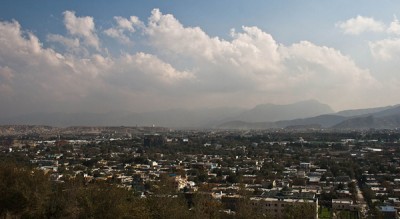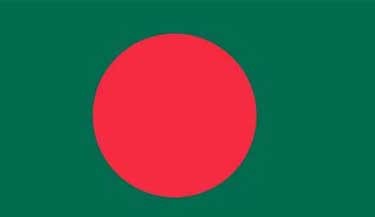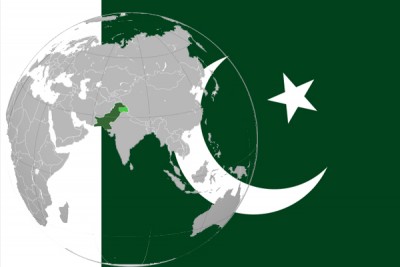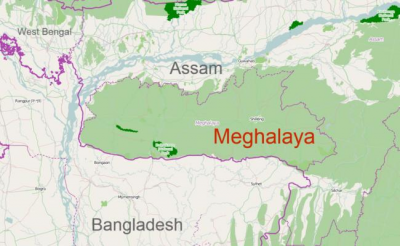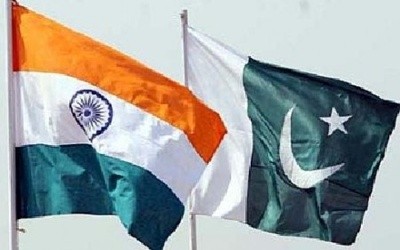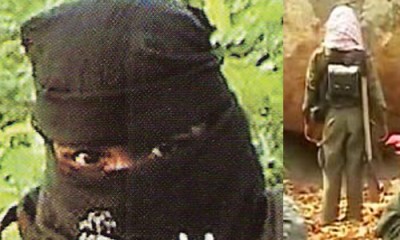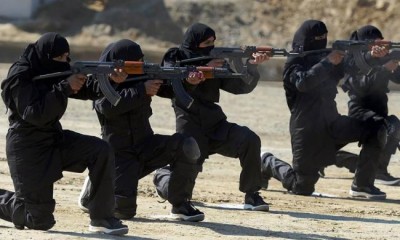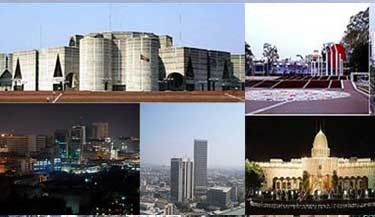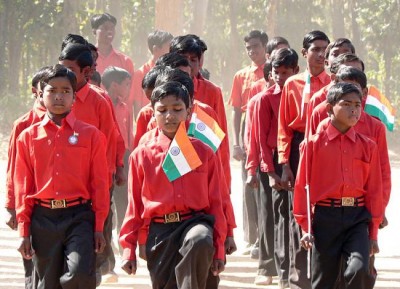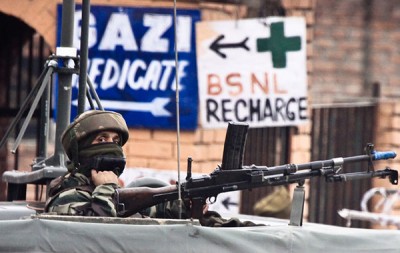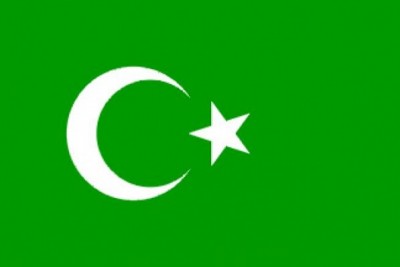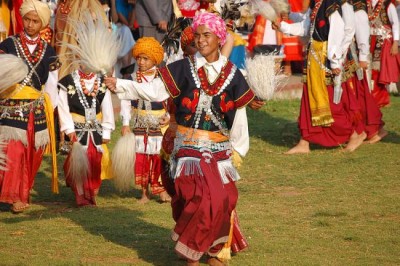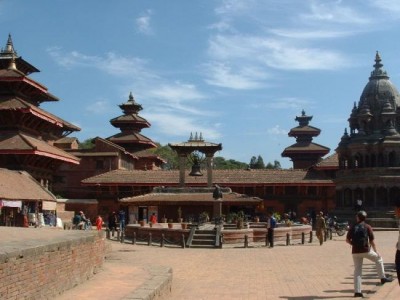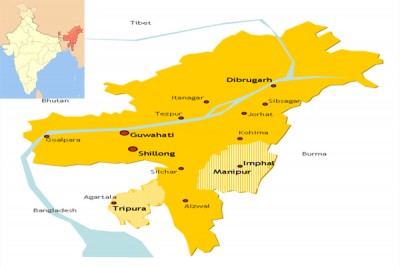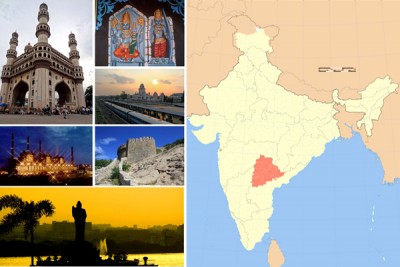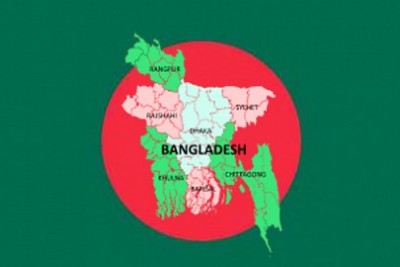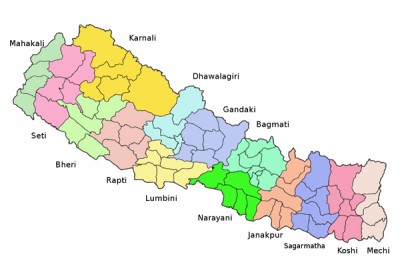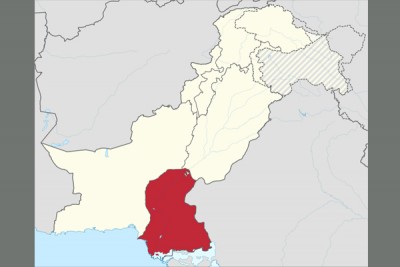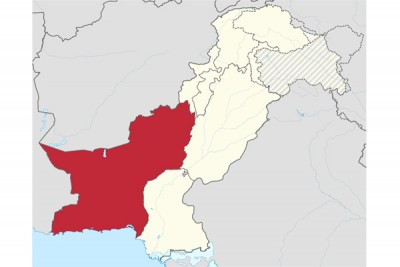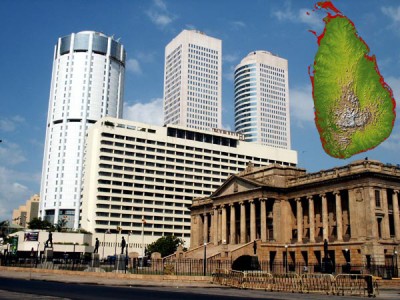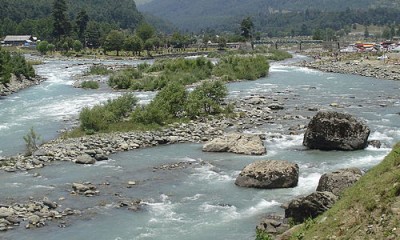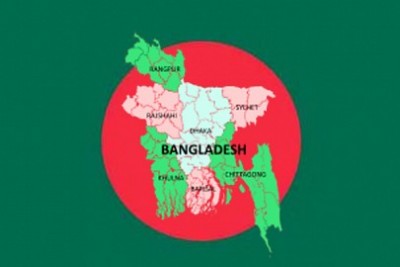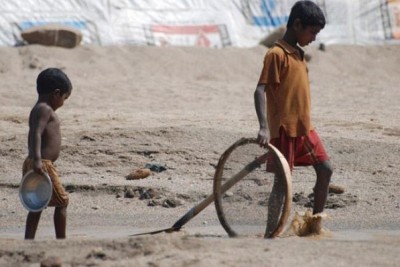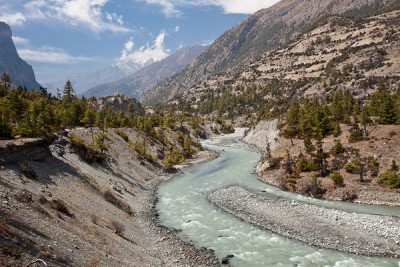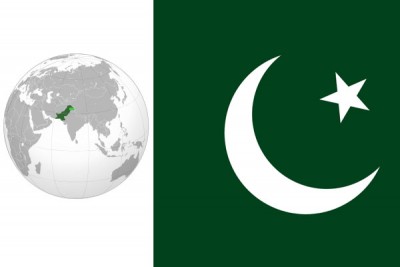Aug 31, 2015, at 09:51 pm
Research Assistant, Institute for Conflict Management Three Border Security Force (BSF) personnel and a civilian were killed and six BSF personnel, including an Assistant Commandant, were seriously injured in a Communist Party of India-Maoist (CPI-Maoist) ambush at Palangarai ghat (ferry point) on Gurupriya River under the Chitrakonda Police Station limits in the Malkangiri District of Odisha early in the morning on August 26, 2015. According to reports, the BSF patrol party was returning to its base camp at Janbai, where a bridge is being built over Gurupriya River to provide connectivity to the cut-off area, when the Maoists first triggered a landmine blast and then opened indiscriminate fire.
Aug 25, 2015, at 01:09 am
Research Fellow, Institute for Conflict Management Following a historic agreement on August 20, 2015, between the United National Party (UNP) and the Sri Lanka Freedom Party (SLFP) to sign a Memorandum of Understanding (MoU), the incumbent Prime Minister Ranil Wickremesinghe on August 21, 2015, took oath as the 26th Prime Minister (PM) of the island nation. Wickremesinghe was sworn in as the PM for the fourth time [having served earlier tenures between May 17, 1993, and August 19, 1994; December 9, 2001, and April 2, 2004; and January 9, 2015, and August 20, 2015]. Later in the day, the MoU was signed by the two parties. UNP and SLFP are the two major political forces in Sri Lanka, with a long history of bitter rivalry, and who engaged fiercely in the latest round of Parliamentary Elections on August 17, 2015.
Aug 18, 2015, at 02:18 am
Research Fellow, Institute for Conflict Management Among a range of indicators of deterioration of the security situation in Afghanistan came the announcement of the death, at least two years earlier, of Mullah Omar, the so-called Amir ul Momineen (Leader of the Faithful) and 'supreme commander' of the Taliban; a contested succession for leadership of the group; and the rising spectre of the Islamic State (IS, formerly Islamic State of Iraq and al Sham, ISIS) in the Af-Pak region. These developments promise enduring troubles, even as they give signs of the unraveling of Pakistan's strategy of orchestrated negotiations and proxy war against Afghanistan.
Islamist Backlash, Measured Justice
Aug 11, 2015, at 06:51 pm
Research Associate, Institute for Conflict Management On August 7, 2015, Niladri Chattopadhyay Niloy alias Niloy Neel (28), a secular blogger and a Gonojagoron Mancha (People's Resurgence Platform) activist was hacked to death at his Goran residence in the Khilgaon area of the national capital, Dhaka, in broad daylight. Later in the evening, a group identifying itself as Ansar-al-Islam, Bangladesh chapter of Al-Qaeda in the Indian Sub-continent (AQIS), claimed responsibility for the murder in an email sent out to almost all media outlets. The email declared: "Alhamdulillah! Mujahidin of Ansar-al-Islam (AQIS, Bangladesh Branch) carried out an operation to slaughter an enemy of Allah and His Messenger (peace & blessings be upon him), whose name is Niloy Chowdhury Neel."
Aug 04, 2015, at 07:01 pm
Research Associate, Institute for Conflict Management On July 29, 2015, eight death row prisoners were executed in Pakistan's Punjab Province. Three prisoners, identified as Muhammad Safdar, Aftab and his father, were hanged at Attock District Jail. Aftab and his father Usman had killed a man in 1998 over a monetary dispute. Muhammad Safdar had murdered two people over a 'petty issue' in 2003. Another convicted prisoner, Muhammad Tufail was hanged till death in Kasur District Jail. Tufail was hanged for killing a man and his son in 2001. Separately, another convict, Mohammad Nawaz was hanged till death in Sargodha District Jail for killing his relative over a land dispute in 2002. In Multan District Jail, death row prisoner Nayyar Abbas was hanged for killing a man in 1996. Another prisoner, Gulfam alias Gullu, was hanged till death in Gujrat District Jail for killing a man in 2001. Ahmed Din was hanged at the Jhang District Jail for killing Shireen Khan in a land dispute in April 2001.
Jul 21, 2015, at 04:14 am
Research Assistant, Institute for Conflict Management On July 9, 2015, Special Weapons and Tactics (SWAT) team of Meghalaya Police killed a Garo National Liberation Army (GNLA) 'commander', identified as Savio Marak, at Rengregre village in East Garo Hills District. Inspector General of Police (Operations) G.H.P Raju disclosed that Savio, a former Meghalaya Police constable was wanted in several cases of murder, abduction, bombings and extortion in the Garo Hills region. Savio had deserted the Police Force in February 2011, while on duty at a relief camp for victims of the Garo-Rabha ethnic clashes during the month of January 2011.
Jul 13, 2015, at 10:24 pm
Editor, SAIR; Executive Director, ICM & SATP India's policy on Jammu & Kashmir (J&K), on terrorism, and on the principal sponsor of terrorism in South Asia - Pakistan - has often been criticized for its inconsistencies. Over the past years, however, an increasing consistency has been evident - though perhaps not in any particularly constructive sense: the consistency of a pendulum, swinging with insistent regularity from one extreme to the other. Another Swing of the Pendulum, November 3, 2003
Maoists: Chhattisgarh: Limited Gains, Repeated Errors
Jul 06, 2015, at 09:47 pm
Research Associate, Institute for Conflict Management Three cadres of the Communist Party of India-Maoist (CPI-Maoist), including two women, were killed in an exchange of fire between the Maoists and the Security Forces (SFs) near Jinipa under Tarlaguda Police Station limits in Bijapur District on June 12. Apart from the bodies, Police recovered five weapons from the spot. While the two women cadres are yet to be identified, the third Maoist was identified as 19-year-old Kodamagundla Vivek, a dropout from Osmania University who had played a major role during the students' agitation for Telangana in 2012-14. He belonged to Suryapet in Telangana.
Jun 30, 2015, at 05:27 pm
Research Associate, Institute for Conflict Management Two 'commanders' of the Balochistan Liberation Front (BLF) and Tanzeem Lashkar-e-Balochistan (TLB), along with a group of 57 insurgents, laid down their arms in the presence of Pakistan Muslim League-Nawaz (PML-N) leader Nawab Sanaullah Zehri in the Khuzdar District of Balochistan on June 13, 2015. According to reports, BLF commander Din Jan aka Meeran and TLB leader Ubaidullah aka Beebarg laid down their arms and vowed to join the 'national mainstream'. The leaders also chanted 'Pakistan Zindabad' (Long Live Pakistan) and 'Balochistan Paindabad' (Balochistan Live Forever).
Jun 23, 2015, at 09:19 pm
Research Associate, Institute for Conflict Management On June 7, 2015, a team of Detective Branch (DB) of Police arrested nine militants of the Bangladesh Jihadi Group (BJG) from capital city Dhaka's Banashree and Sutrapur areas, while they were preparing to execute bank robberies. A huge quantity of bombs, explosives and books on jihad (holy war) were seized from their possession. While six of the arrestees - identified as Kazi Iftekhar Khaled aka Khaled aka Ifti, Fahad bin Nurullah Kashemi akaFahad aka Kayes, Mohammad Rahat, Din Islam, Ariful Karim Chowdhury aka Adnan and Nurul Islam - were picked from the garage of a Banashree apartment, another three - identified as Mawlana Nurullah Kashemi, Delwar Hossain, and Yasin Arafat - were arrested from Sutrapur. Sanwar Hossain, Additional Deputy Commissioner (ADC, South Dhaka) stated that Rahat, Fahad and Khaled were experts in making bombs.
Jharkhand: Sustained Offensive
Jun 15, 2015, at 10:12 pm
Research Assistant, Institute for Conflict Management Twelve Communist Party of India-Maoist (CPI-Maoist) cadres, including a 'zonal commander' identified as Anurag Yadav aka RK aka Doctor, who was carrying a reward of INR 1 million on his head, were killed by a joint team of Palamu Police, Jharkhand Jaguars and Commando Battalion of Resolute Action (CoBRA) personnel at Bakoria village near the Palamu-Latehar border in the Palamu District of Jharkhand at around 01:00 hrs [IST] on June 9, 2015. Confirming the incident, Palamu Superintendent of Police (SP) Patel Mayur Kanaiya Lal stated, "The encounter took place in Bakoria village, about 140 km from Ranchi. All the bodies have been recovered." Two INSAS rifles, an American 30-06 Springfield rifle, four .303 rifles, a semi-automatic rifle and cache of ammunition were recovered from the encounter site.
Balochistan: Sanguinary Faultlines
Jun 08, 2015, at 09:48 pm
Research Assistant, Institute for Conflict Management In another act of targeting settlers from outside Balochistan, Baloch insurgents shot dead 22 Pashtuns on May 29, 2015, all of them daily wagers and labourers, who were travelling in two passenger buses en route to Karachi (Sindh) from Pishin District (Balochistan), in the Khad Kucha area of Mastung District. At least 15 to 20 militants, wearing Security Forces' (SF) uniforms, came in three pickup trucks and abducted some 35 passengers. The militants subsequently killed 22, and set free another five. The fate of the remaining eight is unknown.
Jun 01, 2015, at 09:48 pm
Research Associate, Institute for Conflict Management On May 26, a person identified as Ghulam Hassan Dar was killed by unidentified gunmen in Sopore Town of Baramulla District. Dar was the father of a sarpanch [head of panchayat, village level self-government institution] who had an Aircel mobile transmission tower installed inside his residential compound.
Islamic State: Lurking Dangers
May 28, 2015, at 04:41 pm
Research Fellow, Institute for Conflict Management After nearly six months of investigation in a case related to the Islamic State of Iraq and Levant [ISIL, later, the Islamic State (IS)], the National Investigation Agency (NIA), filed a charge sheet on May 20, 2015, before the NIA Special Court in Mumbai. According to the Agency,
Meghalaya: Continuing Irritants
May 11, 2015, at 10:16 pm
Research Assistant, Institute for Conflict Management On May 7, 2015, Security Forces (SFs) killed a suspected Garo National Liberation Army (GNLA) militant, identified as 'lieutenant' Sanjay alias Gobat Gambat, in the Tapa Darengchi area of North Garo Hills District. One pistol was recovered from the incident site.
Mar 30, 2015, at 10:06 pm
Research Associate, Institute for Conflict Management On March 30, 2015, 41 people including 35 cadres of Unified Communist Party of Nepal-Maoist (UCPN-M)-led 30-party alliance, five Policemen and one minor were injured in clashes between Police and demonstrators during the lathi (baton) rally organized by the alliance across the country against attempts to draft the Constitution through the majority voting process, instead of consensus.
Northeast: The Troubles Endure
Mar 24, 2015, at 10:21 pm
Research Assistant, Institute for Conflict Management Insurgencies in India's Northeast have seen repeated cycles of reverses and resurgence. Most States in the region remain poorly governed and, on a wide range of parameters. The recent conflagrations in Assam have demonstrated clearly that, however significant the gains of the state in a particular theatre, there is no space for the pattern of administrative incompetence, political corruption and neglect that has characterized governance in the Northeast - and, increasingly, much of India as well. The enemy waits, close at hand. SAIR Volume 11, No. 34, February 25, 2013.
Mar 17, 2015, at 05:06 pm
Research Associate, Institute for Conflict Management After a protracted political slug fest and acrimonious protests, the new State of Telangana was created on June 2, 2014, bifurcating Andhra Pradesh. According to the arrangement, Hyderabad will remain the joint capital for both the States for ten years, after which Andhra Pradesh will have its own capital and Hyderabad will be transferred entirely to Telangana. While Telangana has 10 Districts, the residuary Andhra Pradesh has 13. Interestingly, even as the undivided Andhra Pradesh successfully broke the backbone of Maoist movement in the State, the Maoists managed retain a shadow of their presence in the State. That shadow remains visible in Telangana.
Mar 10, 2015, at 05:40 pm
Research Associate, Institute for Conflict Management On March 4, 2015, Shipon Mia (30), a driver was burnt to death and his assistant Shakil Ahmed (15) suffered serious burn injuries, when supporters of the Bangladesh Nationalist Party (BNP)-led 20-party alliance's blockade programme hurled a petrol bomb at their pick-up van in the Shibganj area of Chapainawabganj District.
Feb 25, 2015, at 05:59 pm
Research Fellow, Institute for Conflict Management On February 18, 2015, at least four Shias were killed and another six were injured in a suicide attack during evening prayers at a mosque inside Qasr-e-SakinaImambargah (Shia place of worship) located on Kurri Road in the New Shakrial area of Rawalpindi District in Punjab. Police sources stated that the suicide bomber opened fire before trying to enter the mosque. When challenged by guards deployed at the Imambargah, the attacker attempted to detonate his explosive vest, but failed to do so. The explosive vest was diffused later. Fahad Marwat, a 'spokesman' of Jundullah, a splinter group of Tehreek-e-Taliban Pakistan (TTP), claiming responsibility for the attack, declared that the blast was in a reaction to the ongoing operation Zarb-e-Azb [Sword of the Prophet] in the North Waziristan Agency of Federally Administered Tribal Areas (FATA).
KP: Declining Violence, Increasing Threat
Feb 17, 2015, at 07:28 pm
Research Associate, Institute for Conflict Management At least 22 Shias were killed and another 50 were injured when a three member suicide squad attacked an Imambargah (Shia place of worship) in the Phase-5 locality of the Hayatabad area in Peshawar, the provincial capital of Khyber Pakhtunkhwa (KP), on February 13, 2015. As the entrance of the Imambargah is heavily guarded, the terrorists dressed in Police uniforms entered the Imambargahfrom the other side of the mosque, cutting through barbed wire, and carried out the attack when around 800 worshippers were offering Friday prayers. Of the three suicide bombers who entered the mosque, only one was able to blow himself up. A second was killed by Security Force (SF) personnel, while the third was arrested in an injured condition.
Feb 09, 2015, at 10:16 pm
Research Fellow, Institute for Conflict Management The environment of peace that had been established in Nepal in 2013 survived, despite challenges, through 2014, with not a single insurgency-related fatality on record. Significantly, since March 2000, when the South Asia Terrorism Portal (SATP) database commenced compiling data on insurgency-related fatalities in Nepal, it was in 2013 that the Himalayan Nation did not record a single insurgency-related fatality during the course of a year, for the first time, and remained completely free of insurgency-related violence. At its peak in 2002, the insurgency saw 4,896 persons, including 3,992 Maoists, 666 Security Force (SF) personnel and 238 civilians, killed in a single year.
Feb 03, 2015, at 06:09 pm
Research Assistant, Institute for Conflict Management ...Violence in Karachi has become so commonplace that reports of ever more gruesome excesses against the citizens are usually taken in the stride...
Balochistan: Persistent Crisis
Jan 20, 2015, at 08:15 pm
Research Associate, Institute for Conflict Management The Security Forces (SFs) recovered three bullet-riddled bodies from Mand area of Turbat District of Balochistan on December 30, 2014. The victims had been shot multiple times in the head, chest and face at close range.
Jan 13, 2015, at 06:46 pm
Research Fellow, Institute for Conflict Management In a dramatic turnaround of political fortunes in the island nation, Pallewatte Gamaralalage Maithripala Yapa Sirisena, leader of the New Democratic Front (NDF), emerged victorious in a keenly contested Presidential Election held on January 8, 2015. Sirisena secured 6,217,162 votes (51.28 per cent) against 5,768,090 votes (47.58 per cent) polled by Mahinda Rajapaksa, the incumbent President, and candidate of the United People's Freedom Alliance (UPFA). A total of 19 candidates were in the fray, but the election was a direct contest between Sirisena and Rajapaksa from the outset, with the remaining 17 candidates eventually securing a joint total of 1.14 per cent votes. Sirisena took oath as the Seventh Elected Executive President of the country on January 9. It was the seventh presidential election.
J&K: Dangers Lurk behind Democratic Triumph
Dec 31, 2014, at 02:25 am
Research Fellow, Institute for Conflict Management
Dec 23, 2014, at 03:50 am
On December 18, 2014, the International Crimes Tribunal-2 (ICT-2) indicted Forkan Mallik, an alleged Razakar (a paramilitary force organized by the Pakistan Army) commander from Mirzaganj sub-District in Patuakhali District, for his involvement in crimes against humanity during the Liberation War of 1971. The tribunal framedfive charges against Forkan, a supporter of the main opposition Bangladesh Nationalist Party (BNP).
Juvenile Justice: Do We Want Retribution, Or Reformation
Dec 09, 2014, at 09:19 pm
Children cannot be made to pay the price for the inefficiency of a system – clearly reflected in the poor implementation of the Juvenile Justice legislation. Strengthening the existing system through the effective implementation of the legislation should have been the call of the hour, rather than its amendment, writes Puja Marwaha, CEO, Child Rights and You (CRY)
Dec 09, 2014, at 09:10 pm
In a clear indication of deepening polarization in the constitution drafting process in Nepal, 20 out of 31 parties represented in the Constituent Assembly (CA), on November 20, 2014, rejected the seven-province proposal of the ruling alliance - the Nepali Congress (NC) and Communist Party of Nepal-Unified Marxist Leninist (CPN-UML). The dissident parties alleged that the joint proposal was against the spirit of the Interim Constitution of 2007 and earlier peace agreements, including the 11-Point Agreement, 7-Point Agreement and 23-Point Agreement. Prime Minister Sushil Koirala, who is also President of the ruling NC, and CPN-UML Chairman K.P. Sharma Oli, had jointly presented the seven-province proposal at a meeting of the Constitutional Political Dialogue and Consensus Committee (CPDCC) on November 3, 2014.
Dec 09, 2014, at 09:03 pm
Dr. Rubina Khalid (55), a senior professor of the Dow University of Health Sciences and a Sunni, was shot dead by unidentified assailants on University Road in Karachi, the provincial capital of Sindh, in the night of November 25, 2014. Police said it was still unclear whether the shooting was a robbery gone wrong or a targeted murder.







